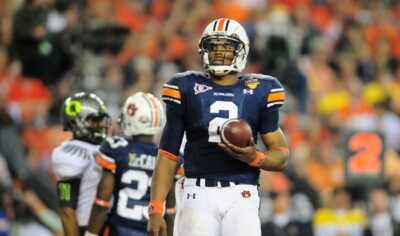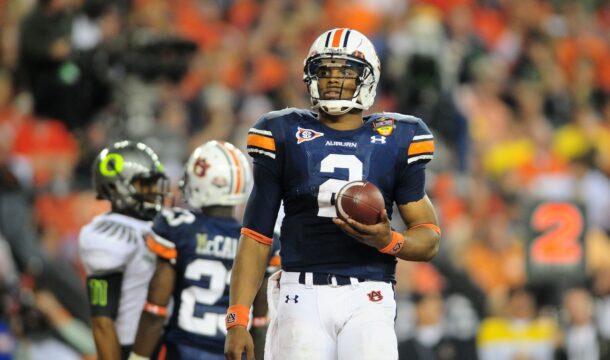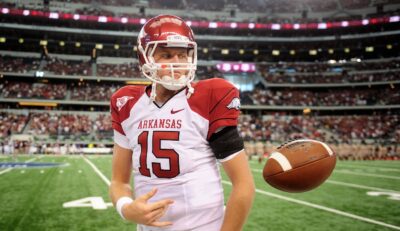
Florida basketball under Mike White is a mystery wrapped in an injury-riddled enigma.
The Gators are never bad. White has never had a losing season in his 11 years as a Division I coach, with 7 of those coming as Billy Donovan’s successor in Gainesville.
But are the Gators ever really good? They certainly were really good in White’s second season, when they finished second in the SEC and advanced all the way to the Elite 8 before Duane Notice’s travel wasn’t noticed by the referees and South Carolina nipped the Gators to go to the Final Four. The Gators were probably really good in White’s third season as well, when they tied for the national lead in Quad 1 wins, swept Kentucky, finished in the Top 25 and lost a heartbreaker to a great Texas Tech team in the second round.
But since season 3, and that now covers a span of 4 long years, the Gators haven’t been really good.
They are good enough to go to the NCAA Tournament, which is something. You can’t win a national championship if you aren’t invited to the Big Dance.
They are also good enough to win an NCAA Tournament game in each of the past 4 seasons. Only 6 programs in the country can make such a claim (Gonzaga, Kansas, Villanova, Florida State, Michigan and Florida). Of those, White is the youngest head coach.
The Gators also have the 2nd-most SEC wins in the White tenure (trailing only Kentucky and tied with Tennessee) and they have the 2nd-most SEC road wins in the White era (trailing only Kentucky).
But the longer the White era goes, the more those numbers feel like program media guide talking points.
When was the last time Florida competed for the SEC championship in basketball? The answer is White’s second season — even his Year 3 team managed to be inconsistent enough to finish a distant 3rd in the league.
When is the last time you looked at a Florida basketball team and said: There’s a Final Four contender?
Perhaps you would have last year, if not for the tragedy that befell preseason SEC Player of the Year and All-American Keyontae Johnson in December of 2020. A team with Keyontae, future first-rounder Tre Mann, second-rounder Scottie Lewis and All-SEC big Colin Castleton would have been formidable.
That never came to be, of course, and so the answer to the question is Year 2, when the Gators reached the Elite 8 despite the loss of All-SEC big John Egbunu.
That reality is painful for Florida fans, who became accustomed to being a second-weekend mainstay during the latter half of the Donovan era and grew accustomed to having teams in the thick of the SEC Championship race.
Two seasons ago, in the COVID stoppage season, the Gators nearly met preseason expectations, but blew a 20-point lead against Kentucky at home and finished 5th in the league instead of 2nd. That team began the year in the Top 5.
A combination of impossible expectations (no one Florida hired was ever going to live up to Donovan’s Hall-of-Fame worthy standards) and underachievement has placed the Florida program squarely in the crosshairs of national media who wonder, with much justice, if the Gators can and should be more.
Has White been snakebit by injuries? That’s fair. Johnson’s loss would hurt any program, as would the losses of Egbunu (1 1/2 seasons lost), Keith Stone (almost all of SEC play in another campaign), and recently, Colin Castleton (6 games in SEC play).
But the results are what they are.
So what’s the best way to describe Florida under White? Average? That’s a bit unfair. Average teams and programs don’t consistently go to the NCAA Tournament. A better description? Good, but never elite.
Is that the standard at Florida? That’s for Scott Stricklin to decide.
At present, White has an $8.5 million buyout and a top-20 recruiting class on the way. Unless White wants out — and there are rumblings, perhaps from his own agent and camp — that he might, White is likely back in Gainesville in 2022-23.
What does that mean for Florida? History tells us it means more of the same: a Florida team that is competitive but never competes for championships. A Florida team that is on the right side of the bubble but never a bracket-busting threat.
White, to his credit, has tried a number of things to try to unmoor his program from the muck of being the nation’s most predictable college hoops afterthought. He’s flipped his roster on a number of occasions, including this offseason, when he unloaded bad cultural fits to the portal and brought in a host of veteran players who would defend and help restore White’s lunch pail culture that served him so well at Louisiana Tech, where he won 3 conference championships, and early in his tenure at Florida.
But the constant roster tinkering hasn’t worked, and in many ways is a symptom of a larger problem plaguing Florida’s program.
The Gators simply don’t have an identity under White.
Is the program’s goal to have an elite defensive culture? It seemed that way in the first 4 seasons, when the Gators finished in the Top 25 in KenPom Adjusted Defensive Efficiency every season. But Florida hasn’t been elite defensively since, and this season, the Gators rank outside the top 50 in KenPom Adjusted Defensive Efficiency for the 2nd time in 3 years.
Is the program’s identity to play fast and score a bunch of points? White told the media a season ago that “Playing fast is in my DNA.” The problem is that’s not true. The Gators have been meticulous and slow, finishing no better than 161st in tempo in the past 4 seasons and in the 300s twice.
This year, the Gators rank 248th. Playing slow would be fine if Florida had a coherent offensive identity, but the only consistency to the offense is a commitment to changing what the team does midseason. In each of the prior 4 campaigns, Florida has started the season with one offense only to realize it didn’t suit the program’s personnel and shift to a different offense. Credit Florida’s staff for pragmatism, I guess, but it’s hard to build a program identity when you constantly chart a new course.
This year’s team is no different.
A bubble team in Joe Lunardi’s Last 4 In, the Gators are a veteran team that seems to love playing together and that fights hard but lacks much of an identity beyond that. They struggle in their halfcourt offense and change what they do (they have tried 5 out, playing through Castleton in the post, and heavy set reliant, Princeton concepts this year) too often to get good at anything.
They lack anyone, outside jitterbug point guard Tyree Appleby, who can create his own look. And as of yet, the staff hasn’t put players who can straight line drive — notably the wonderfully named Phlandrous Fleming and Anthony Duruji, in positions to do just that.
They can defend well, especially with defensive stopper Niels Lane on the floor. (Since Lane emerged from White’s doghouse in the Oklahoma State game, the Gators give up just .78 points per possession when Lane is on the floor, a great number.) But they also can be prone to giving up far too many straight-line drives and they don’t rebound well enough to prevent second-chance buckets, which buried them in losses to LSU and Ole Miss this season.
After beating Georgia on Wednesday night, Florida faces the most pivotal stretch of its season, beginning Saturday at Kentucky. In 4 games, they will play at Rupp, at Texas A&M, and then host Auburn and Arkansas. If Florida manages to win 2 of those games, they will double their total of Quadrant 1 wins and almost assuredly be in the NCAA Tournament field for the 5th consecutive time. If Florida goes 1-3, they’ll likely need a lengthy showing at the SEC Tournament in Tampa to feel safe.
Even if the Gators get into the NCAA Tournament, they don’t have the kind of guard play typically needed to escape the first weekend and they don’t defend at a high enough level to rattle the likely 2 or 1 seed they would see in the Second Round.
As a result, another year of “Get in, win a game, go home” may be in the offing.
Is that good enough in Gainesville, a place with 5 Final Fours and more Sweet 16 appearances than any SEC program save Arkansas and Kentucky?
That’s a discussion that has to happen in the Florida athletic department, and it isn’t clear an 8th season would change the facts on the table.
Neil Blackmon covers Florida football and the SEC for SaturdayDownSouth.com. An attorney, he is also a member of the Football and Basketball Writers Associations of America. He also coaches basketball.







